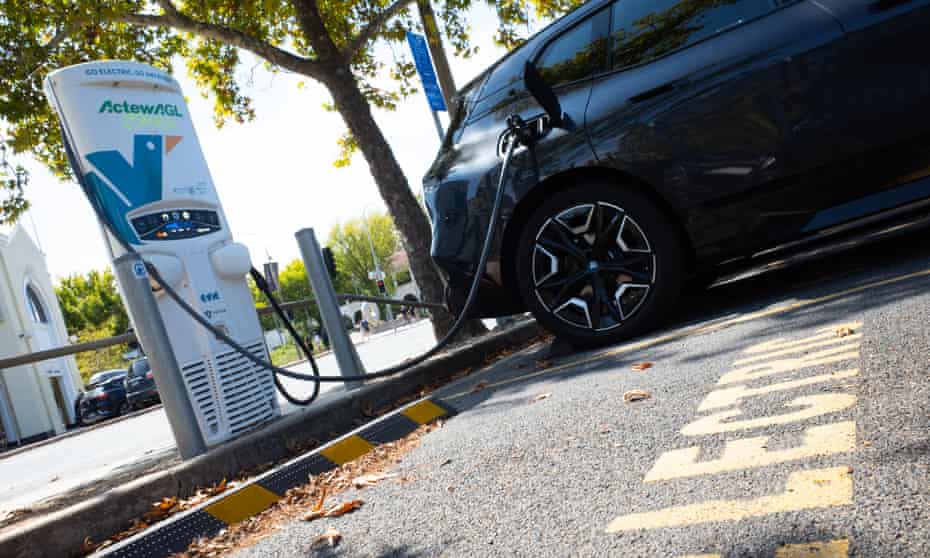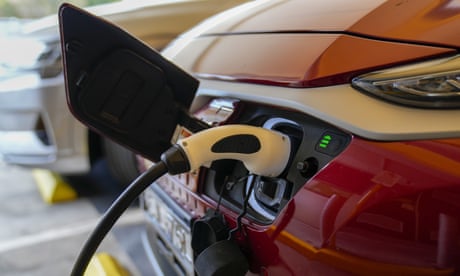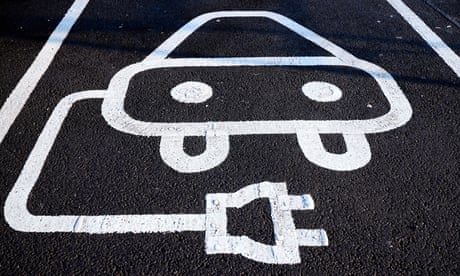Extract from The Guardian
Waiting lists of thousands, cars selling out in seconds, welcome to the frustrating world of the Australian EV buyer.

‘Our biggest issue now is actually attracting supply of electric vehicles, not getting Australians interested in buying them.’
In six and a half minutes, all 109 of Hyundai’s electric SUVs had sold – 18,000 Australians had registered their interest.
“You’ve just got to keep on trying and get in there straight away, which seems ridiculous when you’re purchasing an $80,000 car,” Holding says of the second time he tried to beat the queue to buy Hyundai’s Ioniq 5.

The pace at which the cars sold out is part of a broader issue, according to leaders in the industry, as the demand for them in Australia now outstrips supply.
Jafari says Australia is underserved in EVs compared with many other countries due to a lack of government EV and climate policies. The majority of EVs are instead flowing to countries that require car manufacturers to sell them in order to meet fuel efficiency standards and CO2 emission reduction schemes. The UK has banned the sale of all new petrol-run cars by 2030, in South Korea the date is 2025.
Last year, the Morrison government announced it would partner with the private sector to fund 50,000 EV charging stations in homes, 500 for businesses and 1,000 in public areas. This is one part of the government’s $2.1bn funded future fuels and vehicle strategy. A spokesperson for the energy minister, Angus Taylor, said the strategy will make “it easier for Australians to make the choice to switch to a new technology vehicle that’s right for them”.
But Australia remains the only country in the OECD not to have fuel efficiency standards for CO2. Nor has Australia adopted the Euro 6 noxious emission standards on fuel quality, which was applied to all new cars sold in the EU more than six years ago.
“Australia is not in the race,” says Jafari. “Our partners in the US and Europe and right around the world have a much easier time because there’s a requirement for them to get enough electric vehicles into their markets.”
Last year carmakers warned there would be production cuts due to supply chain issues resulting from the pandemic. But Hyundai Australia’s general manager of corporate affairs, Bill Thomas, says the fact that there are not enough EVs available in Australia is mainly due to a lack of incentives to sell the cars here, rather than supply chain issues.

When Nathan Gore-Brown, an EV consultant, saw Honda confirm they had no plans to sell the electric car he wanted in Australia – the Honda E – he decided to import a used one from the UK. It cost between $15,000 and $20,000 to bring the almost $45,000 car to Australia.
Gore-Brown says a major issue stalling EV uptake is that Australia does not get the same choice of models as many other countries, and what is sent here is often delayed. Car manufacturer Škoda announced their electric SUV Enyaq would be sold in Australia in 2023, three years after it was first sold in the UK.
Thomas says the demand for Hyundai’s EVs has gradually increased since Russia’s invasion of Ukraine sent petrol prices soaring. “We’re seeing more discussions about EVs on the showroom floor,” he says.
“People are coming in to look at cars and they’re much more likely to talk about the potential for an EV, even more than they were two weeks ago.”
Hyundai has requested more EVs for the Australian market, but does not yet have confirmation they will be delivered. It hopes to secure a version of the Ioniq 5 model that is lower in price later this year.
Jafari says without government leadership on EVs, Australians have been left in a risky position. “Every year that we go on with Australians buying petrol vehicles, they’re at risk of buying a new vehicle that in four or five years’ time will be worthless … no one will want to buy it because it’s redundant technology,” he says.
“There essentially needs to be a warning that people are buying landlines when the world is moving towards mobile phones.”
Due to the difficulty in securing an EV that was right for Holding’s family of four and a dog, he bought an internal combustion engine car four months ago to get him by.
“I did need a car, and it got the point I just couldn’t wait any more,” he says.
A spokesperson for the energy minister, Angus Taylor, said supply chain constraints were a global problem affecting vehicles and components.
“Despite these constraints, Australians already have the confidence to make the choice to drive an EV,” they said. “Battery EV sales are soaring, having tripled from 2020 to 2021.”
The spokesperson said the government’s modern manufacturing strategy was working to overcome global constraints and strengthen local production.
No comments:
Post a Comment